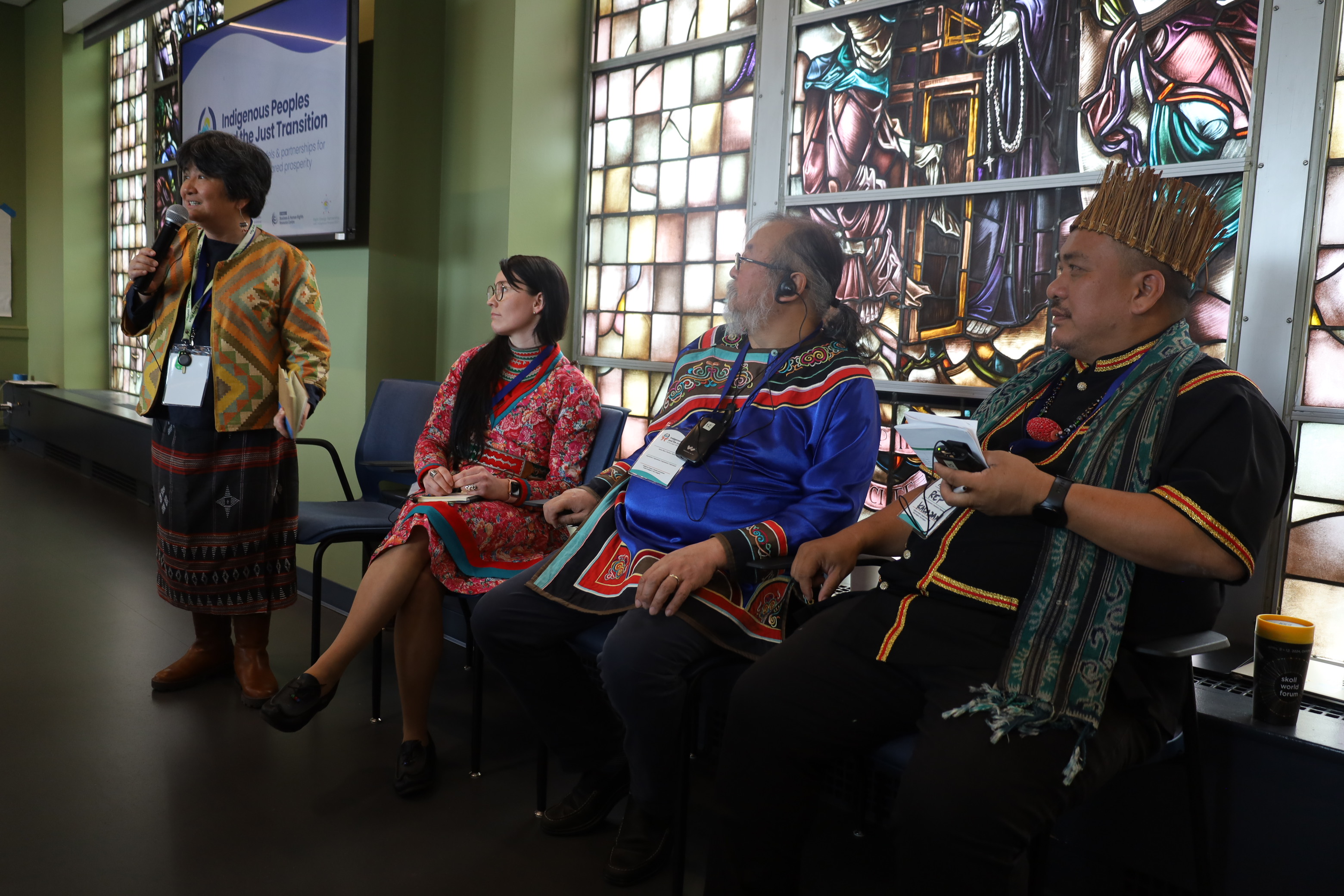More than one hundred indigenous representatives from all regions of the world kicked off the conference "Indigenous Peoples and the Just Transition. Possibilities and challenges in co-ownership models and partnerships to advance human rights and shared prosperity" in New York.
The conference takes place on April 12-14 and 17, and is co-organized by Right Energy Partnership with Indigenous Peoples (REP), the Business and Human Rights Resource Center (BHRRC) and the Indigenous Peoples Rights International, hosting the UNDP and with the support of Nia Tero, The Christensen Fund, Henry Luce Foundation, Waverley ST Foundation, and the Columbia Center on Sustainable Investment.
At the opening ceremony, David Harper, Head of Tribal Engagement at Alliance for Tribal Clean Energy, reminded us that in our struggle for the future of the next generation, sustainability is key.
In a written intervention, the UN Special Rapporteur on Indigenous Peoples, Francisco Calí-Tzay, noted that demand for transition minerals is expected to increase by up to 600% by 2040. He called to prevent "green" energy companies from continuing to repeat the practices of the past. To achieve this, he said, it is essential that indigenous peoples are recognized and their rights are fulfilled, that struggles and solidarity continue, that States incorporate a rights-based approach with the participation of indigenous peoples, that companies and States implement human rights due diligence throughout all projects, that indigenous peoples have direct access to financing, and that indigenous peoples take the lead in the transition agenda to put rights at the center.
Joan Carling, executive director of The Indigenous Peoples Rights International and an indigenous Kankanaey-Igorot, highlighted several contradictions related to the green transition. She pointed out that although indigenous people are the ones who generate the least carbon footprint, we are the ones who suffer the most from both the consequences of climate change and the imposition of projects associated with renewable energy: theft of land and resources, water damage, food insecurity and violent attacks (49 documented in 2022 alone). Faced with this panorama, "we are going to defend ourselves," he assured.
And for this, advocacy can bear fruit, as demonstrated by the intervention of Pavel Sulyandziga, an indigenous Udege, founder and president of the Batani Foundation. Through mobilization and advocacy, they succeeded in getting Tesla to stop buying minerals from the Nornickel company, a violator of their rights. They also succeeded in getting other investors to desist from buying these minerals, that Tesla implement a policy towards indigenous peoples and that they be compensated for the damages suffered. Although the negotiation was cut short by the Russian government's aggression against Ukraine, the case left several lessons: to assume leadership as indigenous people, to call for solidarity -since we are minority nations- and to form a coalition with indigenous people with similar problems elsewhere. "Let us not allow the green transition to become green colonialism," he called.
Continuing the interventions on what the green transition is meaning for indigenous peoples, Saami Council Vice President Ellen-Sara Sparrok spoke about the imposition of Fosen Wind on traditional lands that the Saami Pasotres use for their reindeer. Although the indigenous Europeans won the case in the Supreme Court, there was no enforcement of the ruling until Saami youth and allies staged protests. The indigenous youth led to increased awareness that this was an unsustainable way to install renewable projects, but it also cost them increased hatred against them.
Bannie Lasimbag, an indigenous Kadazan and executive director of Right Energy Partnership with Indigenous Peoples, questioned how much indigenous peoples have benefited from the imposition of renewable energy and transitional mineral mining projects. He questioned whether there is true benefit sharing, charged cultural disregard by investors, and noted that peoples end up suffering displacement and dispossession. Challenges include addressing tokenism (when indigenous peoples are used as mere embellishment or justification), marginalization from decision making, and lack of true involvement throughout all projects. In presenting an exciting mini-hydro project, he pointed out that indigenous peoples have much to offer: community-led solutions, partnerships, a holistic approach, among others.
After discussing in groups, the participants shared their reflections of the day. They warned that the energy transition is being made at the cost of death for the peoples, who are being dispossessed and do not even receive part of the energy they generate. They pointed out that it is the indigenous peoples who have to define what a just transition looks like, and go beyond just receiving jobs in exchange for projects. We have to embrace who we are and "reject band-aid solutions".



